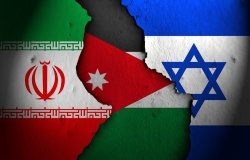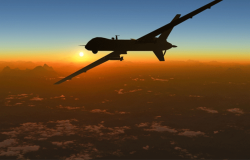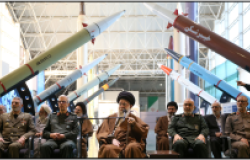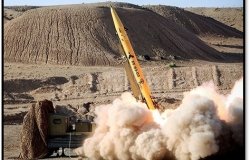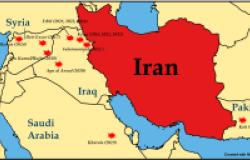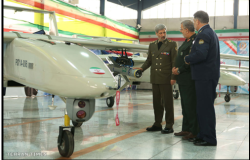Hamas: Past, Present and Future
with Kim Cragin, International Policy Analyst, RAND Corporation
Overview
This meeting, jointly sponsored by the Woodrow Wilson Center's Division of International Security Studies and Middle East Program, the RAND Corporation, and the U.S. Army's Eisenhower National Security Series, was part of an ongoing series on terrorism and homeland security.
In the wake of Hamas' victory in the Palestinian's January 2006 parliamentary elections, the United States now faces a democratically elected ruling party that is also on the U.S. list of designated terrorist groups and does not recognize Israel's right to exist. In the Middle East and beyond, Kim Cragin stated, how Washington deals with Hamas is viewed as an important test of the Bush administration's commitment to democratization.
In focusing on the implications of its recent political victory, Cragin addressed key underlying questions regarding the sources of Hamas' ideology and legitimacy. Hamas is not an Islamist party that seeks to create a religious community – a caliphate governed by Shariah law – outside the contemporary international system: "Statehood is too important" an objective, Cragin observed. Hamas' charter argues that statehood is a prerequisite to Islamic reform – a stance that has put Hamas at political odds with Islamist groups (including Al Qaeda, which has been openly critical). Hamas attained prominence in the 1980s as the primary competitor to Yasser Arafat's Fatah organization, which, in the 1990s, headed the Palestinian Authority (created through the Oslo peace process).
Like other Palestinian factions, Cragin stated, Hamas has derived credibility from both its militancy and its charity. To win popular support, Hamas focused on charitable works, ranging from medical care and orphanages to university scholarships, to fill the void in Palestinian civil society. At the same time, Hamas has sought to demonstrate its ability to challenge Israel militarily. Hamas' military attacks on Israel began in the late 1980s during the 1st Intifada. Israel responded by deporting Hamas members, but deportation had the unintended consequence of exposing them to Hizbollah tactics and prompting the emergence of a new leadership in the occupied territories.
Hamas adopted suicide attacks in the mid-1990s, justifying them in terms of revenge for Israeli acts (such as assassinations of key Hamas operatives). But since the start of the 2nd Intifida, Hamas has justified "martyr operations" as a means to achieve military parity with Israel.
The 2006 parliamentary elections were presaged by the 2004-2005 municipal elections, in which Hamas registered significant gains at Fatah's expense. Hamas benefited from the widely perceived corruption and inefficiency of the Palestinian Authority under Fatah control.
Now in power, Hamas has indicated its interest in focusing on internal problems, rebuffed criticism from Al Qaeda, and has even offered Israel a ceasefire. Cragin argued that Hamas faces the dilemma of reconciling the demands of governing with the political utility it has derived from violence directed against Israel. Hamas' unwillingness to renounce terrorism and recognize Israel's right to exist have prompted the cutoff of U.S. and European aid. In the near-term, Iran, Qatar and others have stepped in with financial assistance, but whether that will be sustained is unclear. The goal of the U.S. and EU move is to exert an economic squeeze on Hamas to bring about a moderation of its behavior. If Hamas fails as a governing party, its leadership will use the United States as a scapegoat. In that eventuality, Cragin speculated that the Palestinians may turn to an even more radical party.
Hosted By

Middle East Program
The Wilson Center’s Middle East Program serves as a crucial resource for the policymaking community and beyond, providing analyses and research that helps inform US foreign policymaking, stimulates public debate, and expands knowledge about issues in the wider Middle East and North Africa (MENA) region. Read more
Thank you for your interest in this event. Please send any feedback or questions to our Events staff.



